Field of Intervention D – Projects
Within the scope of this Field of Intervention, the Programme supports projects which aim to create or develop mechanisms and tools that:
- Promote capacity building for employability, with priority to vulnerable young people, including the development of soft skills and the acquisition of competences required for the labour market
- Foster entrepreneurship and job creation, with priority to vulnerable young people, including training and monitoring of new entrepreneurs
- Contribute towards the social inclusion of vulnerable children and young people
[accordion]
[accordion-tab title=”Capacity Building for Employability”]
D21-201041
Empower “4 job”Promoted by Serviço Jesuíta aos Refugiados |
|
|
This project arises from the needs identified by the promoter regarding the empowerment of young people seeking integration in the labour market, and results from its experience with young migrants. The project will include personal development activities and, afterwards, the fostering of close relationships between young people and potential employers, culminating in the actual integration into the labour market. The project will include 45 young migrants in vulnerable situations, many of which are looking for their 1st job. Properly monitored, and each following an Individual Intervention Plan, these young vulnerable people, which are at risk of exclusion, will improve their “soft skills” in order to be better prepared for the labour market, undertake unpaid internships in companies, and will subsequently be integrated into the labour market. Partnering with schools and private entities is essential for success, regarding skills development in a school environment, training through internship in the private sector, and support in the development and implementation of the project’s communication plan, as well as the dissemination of its findings to the public and policymakers. Key Areas: Youth; anti-discrimination |
|
|
D21-201137 More employabilityPromoted by IPAV – Instituto Padre António Vieira |
|
| The project will provide young adults with tools that will facilitate their access to the labour market, while promoting equal opportunities and social inclusion. A key element of this training process is improving the ability to work in multicultural contexts and reinforcing skills such as tolerance, creativity, open-mindedness and resilience. The initiative will strengthen soft skills, digital literacy, teach young people to write a résumé adjusted to the labour market, promote actions that present young people to active life and instil a proactive and caring attitude towards job-seeking. The promoter and its partners will seek to leverage the national network of higher education and professional institutions, regarding the training of their students and the guidance to young people not in school, through six actions involving thousands of young people, which will include seminars, training activities, self-help groups, peer training, teaching materials, preparation of trainers and bridging actions between business and educational institutions. Key Areas: Youth; participatory democracy |
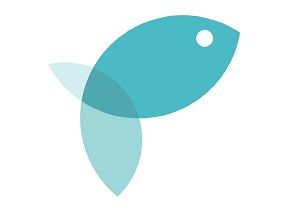 |
|
D21-201184 (IN)EET: Local empowerment for youth employabilityPromoted by Oikos – Cooperação e Desenvolvimento |
|
|
NEET (young people not in employment, education or training) require, in many cases, support in overcoming this circumstance and in planning their future. The project promotes the employability of 100 of these young people in the district of Braga. It will employ an innovative teaching methodology, still little known in Portugal, to empower youth for employability resorting to a simulated business network. The goal is to improve the personal, social and employability skills through individualized support, skills training and direct contact with potential employers. A pool of mentors will be created, participants selected and working groups formed for the coaching processes and vocational guidance, and finally, each participant will follow one of several alternative training paths for employability. Key Areas: Youth; social inequalities, poverty and exclusion |
|
|
D21-201227 Youth for Green Entrepreneurship and EmployabilityPromoted by PEEP – Educar para Empreender (Associação) |
|
| Self-employment and the creation of new green economy companies require not only the entrepreneurship skillset but also the ability to recognize opportunities relating to the environment and sustainability in the creation of green jobs. This project aims to prepare young people accordingly, combining technical training with formal schooling. Once an appropriate group of young people is assembled, training in this area will be promoted through the development of a dedicated online training tool, as well as a training programme. The project will also include the development of a policy brief meant to promote favourable public policies, which will namely propose a set of evaluation indicators, and an inventory of skills required in Portugal regarding green economy. Crucially, the project relies on the transfer of innovative practices from the Norwegian and Icelandic partners, making use of their experience in green entrepreneurship, with the adaptation of best practices for Portugal. Key Areas: Youth; social inequalities, poverty and exclusion |
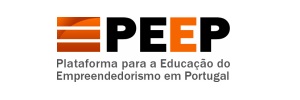 |
|
D21-201259 Development, Entrepreneurship and EmployabilityPromoted by Rumo, Cooperativa de Solidariedade Social, Crl |
|
|
After a careful diagnostic, this project will implement several activities to empower groups of youngsters for social inclusion and civic engagement, promoting pathways for integration into the labour market. It will define, implement and set in motion a network of institutions for the promotion of training, employability, entrepreneurship and job creation for the youth. Youth associations, companies, NGOs and public entities will participate in the project, which will focus on promoting entrepreneurship in schools and in matching the needs of the labour market with the skills of the candidates. It also stresses the importance of bringing closer together the different views that the youth and the businesses have about supporting youth employability and inclusion. This project will also include experimental procedures in two distinct territorial contexts. Key Areas: Youth; social inequalities, poverty and exclusion |
|
|
D21-201338 InSOCIALCHANGE – Integrating Mentoring, Coaching and Teaching to support youngstersPromoted by RH +50 Associação Quadros Seniores |
|
|
The main objective of the project is to use the knowledge and experience of senior professionals to help young people acquire the skills and capabilities required by the labour market. Public vocational courses currently lack some of the key contents required for competitiveness in the labour market, and this project, to be implemented in the municipality of Amadora, will disseminate an innovative intervention methodology, bringing together mentoring, coaching and vocational education tools, drawing on the experience of those senior professionals which will act as mentors and coachers. Designed to promote the employability of young people at risk of social exclusion, the expectation is that the project will improve the relational and teamwork skills – as well as the self-confidence – of the young participants. The project will also address the need to update the teachers’ skills on the issue of employability, as well as organise seminars for sharing experiences among senior professionals, businessmen, teachers, youth and education stakeholders. Key Areas: Youth; promotion of partnerships between NGOs and public authorities Project initiated in October 2014 |
|
|
D21-201350 A New Deal for Youth EmploymentPromoted by Monte – Desenvolvimento Alentejo Central, ACE |
|
|
Directed towards the youth of Alentejo, a region in Portugal struggling with depopulation and weak business dynamics, the project fosters inclusion and employability in the agricultural sector, aiming to strengthen economic and social development in rural areas. To reach this goal, networks for innovation and employability will be created, and other initiatives will be carried out to strengthen entrepreneurship and investments that contribute to job creation and the improvement of the regional value chain of agricultural products. The project also includes cooperation with two research centres dealing with innovation and rural development from Norway, so that Portuguese and Norwegian NGOs may broaden their knowledge and exchange experiences. In order to strengthen the skills of young people, training and awareness raising activities will be carried out, and there will also be the opportunity to contact with best practices and internships on farms and agricultural companies, in addition to technical support. Key Areas: Youth; participatory democracy |
|
|
D21-201381 COOllaborative Networks for Local Youth EmploymentPromoted by Animar – Associação Portuguesa para o Desenvolvimento Local |
|
|
This project aims to promote employability, enhance civic participation and inclusion of young people, particularly those in situations of greater vulnerability. National and local employment support measures do not take into account the distinctive context of the young people who, within the scope of this project, will benefit from close monitoring targeting the various dimensions (social, psychological, familial, economic, educational) of their problems. The project will include the creation of 7 Collaborative Networks for Local Youth Employment in different parts of the country, through which these young people will be engaged to develop their skills and promote their integration in the labour market. The promoter will rely on the collaboration of seven local organizations with experience in tackling unemployment on their local contexts. The partner will liaise with potential employers, as well as disseminate educational products and resources, to be created from the acquired knowledge and the actual needs of the young people participating in the project. Key Areas: Youth; creation of networks and platforms of NGOs |
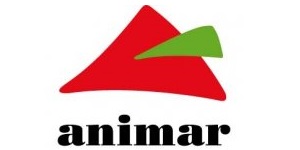 |
|
D21-201466 Driving license for Youth EmploymentPromoted by PROEFA – Associação para a Promoção da Educação e Formação de Adultos |
|
| Portugal currently has a youth unemployment rate of about 35%, and practical responses for professional integration are urgently needed. The object of this project will be the creation of the Driving License for Youth Employment, a way of validating individual preparation and training towards the goal of employment. It will include a theoretical component of “road code” and a practice component of “driving”, in the work environment. It will cover employment as employee, green employment and entrepreneurship. A survey focusing on the main weaknesses experienced in accessing employment will be made, and then, textbooks for both young people (Road Code Book for Youth Employment and Driving Manual for Youth Employment) and for trainers. The training of 14 trainers is also planned. The entire methodology will then be tested and implemented, culminating in the award of the first 20 Driving Licences in Youth Employment. The project also envisages the creation of a web portal. Key Area: Youth; gender equality |
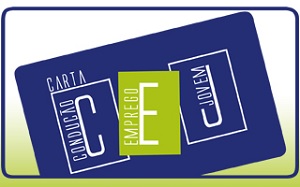 |
[/accordion-tab]
[accordion-tab title=”Entrepreneurship”]
D21-201201
Young EarthPromoted by APPJ – Associação de Promoção de Públicos Jovens em Risco |
|
|
To promote the employability of young people in vulnerable contexts in the Azores Islands, the project will strive to promote local responses for job creation in agriculture and craftwork, with community participation. It shall emphasise the cross training in skills for employability and entrepreneurship, as well as training for young people in a real work environment. The project includes the mapping of the territory, as regards the identification of the community’s public, private, individual or collective resources, from which local idea-sharing workshops will be held, and afterwards, a network will be constituted. The involvement of NGOs will hopefully be achieved, as well as better coordination between existing responses and the creation of new ones, such as the definition of a common brand for marketing the several products to be developed by young people. Key Area: Children and youth problems |
|
|
D21-201221 Entrepreneurial and Sustainable MarvilaPromoted by Seacoop, CRL |
|
|
This project aims to leverage the sustainable development of Marvila, a parish of Lisbon, by strengthening the local economy. Within its scope, territorially sustainable pilot initiatives aimed at promoting youth entrepreneurship shall be launched, and a medium and long term strategy will be outlined. Being more than a social and professional inclusion project for individuals in vulnerable situations, its initiatives promote the economic, environmental and cultural dimensions of governance. It involves a system for bolstering the local entrepreneurial base, employability and income generation. It also integrates a producers’ club, namely for garden products, homemade foodstuffs and urban crafts. It also proposes the creation of consumer clubs, relying on the proximity of local producers, a local innovation lab, and a local brand. Key Areas: Youth; participatory democracy |
|
|
D21-201490 Social AngelsPromoted by SOL DO AVE – Associação para o Desenvolvimento Integrado do Vale do Ave |
|
|
The “Social Angels” are an entrepreneurial community to be established under this project in Povoa de Lanhoso (northern Portugal), involving 50 young people ending vocational training as they prepare for entry into the labour market, and which require pathways to employability; and 30 public and private entities that will frame these youngsters’ entrepreneurship projects. The project comprises five action components: “entrepreneur shock”, alerting the community to the need for their mobilization for entrepreneurship; identification and structuring of projects and mobilization of new strategic actors; consolidation of projects and creation of collaborative networks in the wider community; training workshops in the area of Human Rights, for the creation of young entrepreneurs which are respectful of these rights; and evaluation of the project and creation of a good practices guide which facilitates its replication. Key Areas: Youth; Human rights including minorities rights |
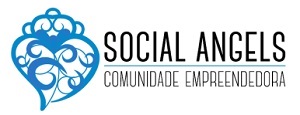 |
|
D21-201530 IDEARIAPromoted by CooLabora, CRL |
|
|
The project aims to be an alternative and complementary solution to public policy regarding youth employability and entrepreneurship, thanks to its flexibility and focus on the specific needs of young people. It aims to develop social skills through youth participation in experimental activities that combine art, innovation and social entrepreneurship. The expected outcomes include the development of social skills through art workshops and training itineraries, the promotion of entrepreneurship, providing a platform for experimentation and guidance in support to business ideas; and through the creation of a manual on social entrepreneurship and good practices guide for youth employment. Project partners, which are essential to the project, will namely provide logistical, technical and incubation support, coordinate and invigorate the artistic activities, and be in charge of the scientific coordination and mentoring processes. Key Areas: Youth; participatory democracy |
|
|
D21-201727 Jovens Empreendedores com FuturoPromoted by Associação das Aldeias de Crianças SOS de Portugal |
|
|
The project aims to train an interracial group of 30 young institutionalized people in entrepreneurship and employability. It is the promoter’s experience that the transition from institutionalization in youth to full integration into the labour market and in society is not an easy process, and it almost never occurs at the age of 18. Activities to be carried out include the development of soft skills and the attainment of the skills required for starting self-employment business projects. These young people will thus be encouraged towards entrepreneurship, and helped to overcome the vulnerability factors which they are forced to face. The project will also include training for technicians and volunteers, the creation of a training manual for young entrepreneurs, and the strengthening of the bonds between businesses, schools and local communities involved. Project partners and other entities involved on an informal level will notably provide young people practical contact with day-to-day business and an opportunity to develop soft skills and technical and entrepreneurial skills. Hopefully, these relationships will lead to future internships and jobs. Key Areas: Youth; empowerment of NGOs |
|
|
D21-201151 TRAD(E)-IN – Tradition and Innovation for EmployabilityPromoted by Caritas da Ilha Terceira |
|
| This project will seek to revitalize traditional activities with economic potential in Angra do Heroismo (Azores), supporting school integration and the employability of especially vulnerable young people of different age groups, thus addressing the high level of school dropout and youth unemployment. The project has the support of schools and other local stakeholders. One of the three components to be implemented will be the development of vocational routes in the school environment, centred on traditional activities, an offer which is currently unavailable in the region. The training and reconversion of skills in traditional activities will also be supported, with individual monitoring. The project will also have a component of entrepreneurship support in traditional activities, in the creation of self-employment and in the organization of producers. The creation of a support structure for the economic activities of young people with greater vulnerability is also planned. Key Area: Youth; social inequalities, poverty and exclusion |
|
|
D21-201173 Intergenerational Cooperation for Ethical and Responsible Tourism in Rural AreasPromoted by Associação Fragas Aveloso |
|
|
This project will focus on rural areas in the Centre region, where young people have few career opportunities. The goal is to train 20 vulnerable young people as local mediators for Ethical and Responsible Tourism (ERT) with the involvement of local communities, and to create a coordination network of young local mediators. The promotion of this set of initiatives is expected to enable social changes at the local level, by promoting tourism in ways which protect the environmental, cultural and historical heritage.It should be noted that female unemployment is particularly high in these areas. The project will include the empowerment of 15 women from villages for the development of new economic activities in ERT, helping to ensure a local sustainability basis and the promotion of gender equality. Other initiatives are also planned, including the establishment of new partnerships with tourism stakeholders in the region. Key Area: Youth; social inequalities, poverty and exclusion |
|
|
D21-201230 Umbrella SkillsPromoted by FigueiraViva – Ass. de Cooperação e Solidariedade para o Desenvolvimento |
|
| The project will foster entrepreneurship and job creation for young people in vulnerable situations, through (a) the development of specific entrepreneurship training courses taught by experts in various relevant areas; (b) the monitoring, by a network of 12 mentors, of the young entrepreneurs in the development of their business projects and in approaching the business community; and (c) the leveraging of the local entrepreneurship support structures in the municipalities of Figueira da Foz and Condeixa (central Portugal), where the project will be implemented. It will include three training cycles of 6 months each, for a total of 45 youths. Each business idea will have a mentor responsible for direct and individualized guidance up to the project’s conclusion. Local entrepreneurs will share, on a voluntary basis, their entrepreneurial experience through informal conversations. In the end, six business are expected to be at the incubation stage. Key Area: Youth; gender equality |
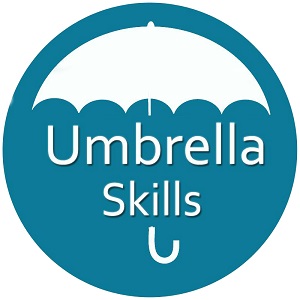 |
|
D21-201742 Social cowork – Promoting Social Innovation Entrepreneurship by Unemployed YouthPromoted by E&O – Engenho & Obra |
|
|
The goal of this project is to promote entrepreneurship with social innovation features among unemployed youths in the Porto Metropolitan Area. It is intended that at least twenty young people develop and implement social innovation business projects, through the participation in a training, counselling and mentoring programme, to be developed in two co-working spaces managed by the project partners. This process will include an intensive incubation period of six months, to initiate the business projects to be developed. Young people will have access to counselling and mentoring, allowing them to develop their business ideas and start their business activities in conditions that will increase their chances for success. In addition, the project will ensure training and capacity building in matters related to social issues, and address issues such as sustainable development. Key Area: Youth; promotion of partnerships between NGOs and public authorities |
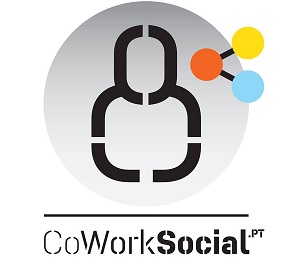 |
[/accordion-tab]
[accordion-tab title=”Social and Professional Inclusion”]
D21-201059
PROmote yourself: Mobile Psychosocial Support Team for Children and Youth with Mental Health ProblemsPromoted by Associação de Reabilitação e Integração Ajuda |
|
|
Although about 20% of the population suffer from at least one mental health problem before reaching the age of 18, Portugal has scarce clinical and rehabilitation services to address these specific issues. This project aims at developing an integrated and proactive service for children and young adults up to 25 years, to respond to these diseases and associated social exclusion. A pilot project for the provision of integrated and assertive care will be implemented through a mobile team of psychosocial support, in a logic of systemic intervention. The aim is to promote a favourable development of the mental health problem, to empower a support network working towards the recovery and inclusion process, to identify the key factors for success and to disseminate good practices. The project will contribute to the employability of the young people benefited. Each partner will use their specific expertise in clinical intervention, skills training for the integration of beneficiaries, and project evaluation and monitoring. Key Areas: Youth; Human rights including minorities rights |
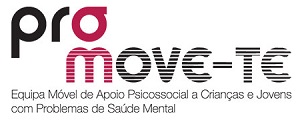 |
|
D21-201110 Be and Grow Barnabé (survivors of childhood cancer)Promoted by Acreditar – Associação de Pais e Amigos de Crianças com Cancro |
|
|
The promoter and its partner were founded by parents of children with cancer in Portugal and Spain, and both are dedicated to providing the best possible quality of life for children and families living with this grave illness, by working with survivors of child cancer. These survivors are role models for those currently living with the disease, and they themselves need support in their journey of cancer survival, which leaves physical and psychological consequences for life. The project aims to provide specific inclusion activities through culture, arts and sports, in order to normalize the physical and psychological condition of these children and youth. For young people, which have higher degree of maturity and understanding in the face of the disease, other activities will also be proposed, which encourage their active participation in addressing their specific problems. The project will also seek to intervene in society, by raising awareness and demystifying some issues linked to cancer, and through the dissemination of information on rights and support services for children and youth. Key Areas: Youth; participatory democracy |
|
|
D21-201244 Employability and Skills through ArtPromoted by PELE, Associação Social e Cultural |
|
|
This proposal seeks to address the inadequate supply of training activities and little or no cultural offer within the prison system. It also intends to implement inclusion processes entailing a soft skills certification for employability among inmates. It will use artistic tools such as theatre and music in assessing and certificating skills in order to leverage the process of reintegration into society and to facilitate integration into the labour market. Through games, exercises and improvisations, the youngsters’ groups shall participate in a collective building process that culminates in a final presentation. The project will also enable institutions and professionals to mediate issues facing young people who have been or are currently incarcerated. To be implemented in the north of the country, it aims to disseminate the methodology, at national and international level, by being able to be replicated in prisons or among equally vulnerable groups. It will also include the preparation of a documentary and a manual in Portuguese and English. Key Areas: Youth; empowerment of NGOs |
|
|
D21-201300 Youth, Art and MovementPromoted by Associação Par – Respostas Sociais |
|
|
The project is aimed at young people at risk in shelters and those institutionalized in educational centres. It will promote personal and social development with using the arts, combining artistic and psychosocial components, and promote socio-professional integration. It also aims to be a pilot project, contributing to the debate on public policy and new models of integration of young people in situations of vulnerability. To achieve these objectives, there will be training activities on social, personal and academic skills, combined with artistic workshops, which complement existing processes already used in shelters and educational centres, and involving their technicians in these activities. The proposals address the need for better use of school facilities, for strengthening the links between the school and the job market, for the promotion of inclusion actions through culture, and for better access to information technology. It is anticipated that these activities will contribute to the structuring of life projects of young beneficiaries and an improved understanding of the social and economic circumstances in which they operate. Key Areas: Youth; promotion of partnerships between NGOs and public authorities |
|
|
D21-201411 Self-determination and Transition to AdulthoodPromoted by ASSOL – Associação de Solidariedade Social de Lafões |
|
|
The project aims to work towards the preparation for an autonomous life project of students with special educational needs who attend regular schools, with specific individual resumes which facilitate their transition to adulthood, through the involvement of the community in working experiences taking place in real contexts. The project will intervene in schools clusters in three regions (Lisbon, Braga and Viseu). The promoter has a vast experience in this field, and intends, with this project, to meet requests my by these youngsters’ parents – the major challenge lies in the lack of preparation in many parts of the country to develop this community integration work. As project partners, the Parents Association Network will accompany the families involved and make an independent assessment of their satisfaction; and ISPA, which will ensure the methodology’s consistency and evaluate the achieved results. Key Areas: Youth; Human rights including minorities rights |
|
D21-201432 Project ArtPromoted by Centro Social de Soutelo |
|
|
The “Projet’Arte” is an innovative project of social inclusion and employability for children and young people from 6 to 30 years old in a socially vulnerable situation, using art as a tool. Recipients will attend a series of training workshops for personal, social and professional skills, art and training workshops respecting the learning time of each individual. The purpose shall be the creation of integrated training paths, taking into account their expectations, motivations, interests and life experiences, building an integrated pathway, with the objective of social and professional integration. This “Skills Incubator” will align the actual skills of the project recipients and existing vacancies in the labour market, encouraging each individual to work a set of skills required for entrepreneurship and to successfully integrate the labour market. The project also aims to advocate for the improvement of the existing public policies by identifying new ways to mitigate youth unemployment, and the associated social and economic costs. Key Areas: Youth; participatory democracy |
|
D21-201631 Opré ChavaléPromoted by Plataforma Portuguesa para os Direitos das Mulheres |
|
|
The lack of educational preparation oriented for the labour market and skills, which are acquired by other members of society by socialization, excludes Roma youth from possible job opportunities. The project aims to change this situation. It proposes some actions that will empower these young adults to break the barriers separating them from higher education. Gender equality will have a special emphasis on the training program and on the selection of a pilot group where priority will be given to female candidates, as they are victims of discrimination within their own patriarchal communities. The initiative also provides information and awareness–raising activities for the Roma community, for the populations in closer contact with this community, and for education-related institutions. A campaign and locally focused work will be performed by mediators, promoting volunteering amongst higher education students which will participate in a mentoring program, where they will closely accompany the young Roma attending higher education. Key Areas: Youth; anti-discrimination |
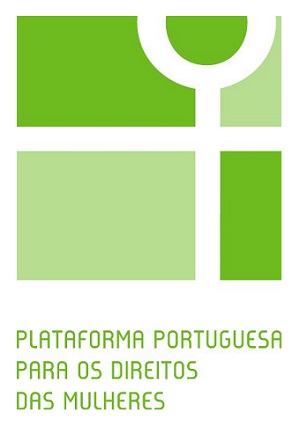 |
D21-201719 Young heArtPartners: Associação para a Defesa do Património, Ambiente e Direitos Humanos, Agrupamento de Escolas de Alcabideche and Agrupamento de Escolas Frei Gonçalo de Azevedo |
|
|
This project will work with young people living within the Lisbon Metropolitan Area, mostly immigrant descendants with relatives from Portuguese-speaking African countries, aged between 15 and 24 years, who often do not study or work, have low skills and lack a well-structured life project. It will promote the required skills for actively seeking employment and towards reintegration through education and/or training. This project will develop a pilot approach in a classroom environment, based on the cultural and sporting competences existing within the community, and of reference for the students, fostering greater proximity between the school and the community and highlighting examples which are a reference for students and lead to added value to their school curriculum. Youngsters’ cultural, artistic and sporting talents will be recognized and validated, soft skills will be developed and talent and entrepreneurial skills will be discovered, through learning in the workplace. Civic participation of young people in their communities will also be fostered. Key Areas: Youth; promotion of partnerships between NGOs and public authorities |
 |
D21-201410 EmPower: from dream to actionPromoted by REDE Portuguesa de Jovens para a Igualdade de Oportunidades entre Mulheres e Homens |
|
| Young Roma women have particular difficulties in accessing the labour market and in engaging in civic participation, and this project is intended to improve this access, and to promote social inclusion and gender equality. The beneficiaries will be empowered with skills to achieve these goals, integrated in a mentoring programme. Through skills development meetings, under non-formal education methodologies, knowledge and skills that lead to their personal development and inclusion in the public sphere will be built. The youths will then develop intervention projects, with the support of the project team and the mentors, which may either focus on social intervention in line with the project’s objectives, or on social entrepreneurship. A compilation of activities and employed methods will be published, facilitating dissemination, and seminars will be held, to give the young people and their work visibility in the community and in the media. Key Area: Youth; gender equality |
|
[/accordion-tab]
[/accordion]

